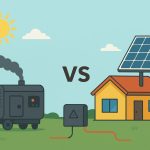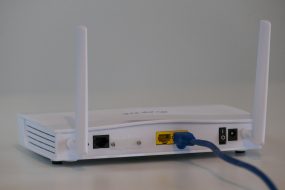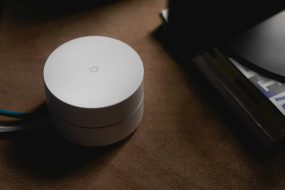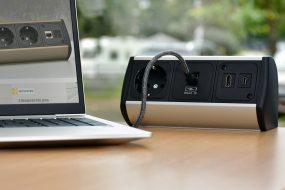
Creating a Low-cost smart home in Nigeria is an exciting venture that brings convenience, security, and efficiency to your daily life. While the idea might seem daunting, setting up a smart home can be straightforward with the right tools and guidance. This guide will walk you through the essentials for Creating a Low-Cost Smart Home in Nigeria, highlighting the need for smart homes in developing countries, the key tools required, where to buy these tools, and tips to ensure everything runs smoothly.
The Need for a Smart Home in Nigeria
Smart homes are not just a luxury for developed nations; they offer significant benefits for third world countries like Nigeria as well. Here are some compelling reasons why smart homes are essential in these regions:
1. Improved Security
Smart home devices such as cameras, smart locks, and motion sensors enhance the security of your home, providing peace of mind in areas where security can be a concern.
2. Energy Efficiency
Smart home systems can help manage energy consumption more effectively, which is crucial in regions with frequent power outages and high electricity costs.
3. Convenience
Automating daily tasks through smart devices can significantly simplify life, especially in busy urban areas.
4. Accessibility
Smart homes can provide better accessibility for the elderly and people with disabilities, making everyday tasks easier to manage.
5. Cost Savings
In the long run, smart home devices can lead to cost savings by reducing energy consumption and preventing potential security breaches.
7 Essential Tools for Creating a Low-Cost Smart Home in Nigeria
Setting up a smart home doesn’t have to break the bank. Here are seven essential tools you’ll need:
1. An Inverter for Uninterrupted Power Supply
Given the frequent power outages in Nigeria, an inverter is crucial. It ensures your smart devices remain operational even during power cuts, maintaining the functionality of your smart home.
2. Smart Plugs to Upgrade Old Appliances
Smart plugs are an affordable way to make your existing appliances smart. They allow you to control devices remotely, schedule operations, and monitor energy usage.
3. A WiFi Modem for Internet Connection
A reliable internet connection is the backbone of any smart home. Invest in a good WiFi modem to ensure seamless connectivity for all your smart devices.
4. Google Home App
The Google Home app is essential for managing your smart devices. It allows you to control and automate various aspects of your home from your smartphone.
5. Smart Home Hub of Your Choice (Preferably Google Smart Hub)
A smart home hub acts as the central controller for your smart devices. The Google Smart Hub is a popular choice due to its compatibility with a wide range of devices and ease of use.
6. Smart Bulbs
Smart bulbs can be controlled remotely and offer features like dimming, colour changes, and scheduling. They help save energy and enhance the ambience of your home.
7. WiFi Door Cam
A WiFi door cam enhances your home security by allowing you to monitor and control access to your home remotely. It can send alerts to your phone and provide live video feeds.
Where to Buy These Tools
You can purchase these essential tools from various online marketplaces that deliver to Nigeria:
1. Jumia Market Place
Jumia is a popular e-commerce platform in Nigeria that offers a wide range of smart home devices at competitive prices.
2. AliExpress
AliExpress provides a vast selection of affordable smart home gadgets. Ensure you check seller ratings and reviews before purchasing.
3. Amazon
Amazon is a reliable option for buying high-quality smart home devices. Although shipping to Nigeria may take longer, the variety and quality make it worthwhile.
4. Jiji.ng
Jiji.ng is a local online marketplace where you can find both new and used smart home devices. It’s a good option for bargain hunters.
How to Ensure Nothing Goes Wrong
1. Research and Plan
Before purchasing, research each device to ensure compatibility and suitability for your needs. Plan your setup carefully to avoid purchasing unnecessary items.
2. Check Compatibility
Ensure all your smart devices are compatible with your chosen smart home hub and each other to avoid integration issues.
3. Stable Internet Connection
Maintain a reliable internet connection to ensure smooth operation of your smart devices.
4. Regular Updates
Keep your devices’ firmware and software updated to benefit from the latest features and security patches.
5. Backup Power
Use an inverter or UPS to provide backup power to your smart home system during outages.
6. Professional Installation
For complex installations, consider hiring a professional to ensure everything is set up correctly and safely.
Conclusion
Setting up a smart home in Nigeria doesn’t have to be expensive or complicated. By understanding the need for smart home technology in third world countries and selecting the right tools, you can create a convenient, secure, and energy-efficient living environment. From inverters to ensure uninterrupted power supply to smart plugs for upgrading old appliances, and from a reliable WiFi modem to smart bulbs and a WiFi door cam, each component plays a crucial role in enhancing your home’s functionality. Purchasing these tools from reputable marketplaces like Jumia, AliExpress, Amazon, and Jiji.ng ensures you get quality products at competitive prices.
Proper planning, ensuring a stable internet connection, regular maintenance, and securing your network are key to ensuring your smart home operates smoothly. Embrace the future of living with a smart home setup that not only makes life easier but also adds a layer of security and efficiency to your daily routine.
Start your journey towards a smart home today, and enjoy the benefits of modern technology tailored to your lifestyle in Nigeria.
Frequently Asked Questions
1. What are the benefits of a smart home in Nigeria?
A smart home enhances security, improves energy efficiency, offers convenience, and can lead to cost savings in the long term.
2. Do smart home devices work during power outages?
Smart home devices can work during power outages if connected to an inverter or UPS, ensuring continuous operation.
3. How can I control my smart home devices?
You can control smart home devices using a smart home hub, a dedicated app on your smartphone, or voice commands through a virtual assistant like Google Assistant.
4. Are smart home devices expensive?
The cost of smart home devices varies, but there are affordable options available that offer excellent functionality without breaking the bank. You can check out these affordable smart bulbs on Jumia.
5. Where can I buy smart home devices in Nigeria?
You can purchase smart home devices from Jumia, AliExpress, Amazon, and Jiji.ng, among other platforms.





